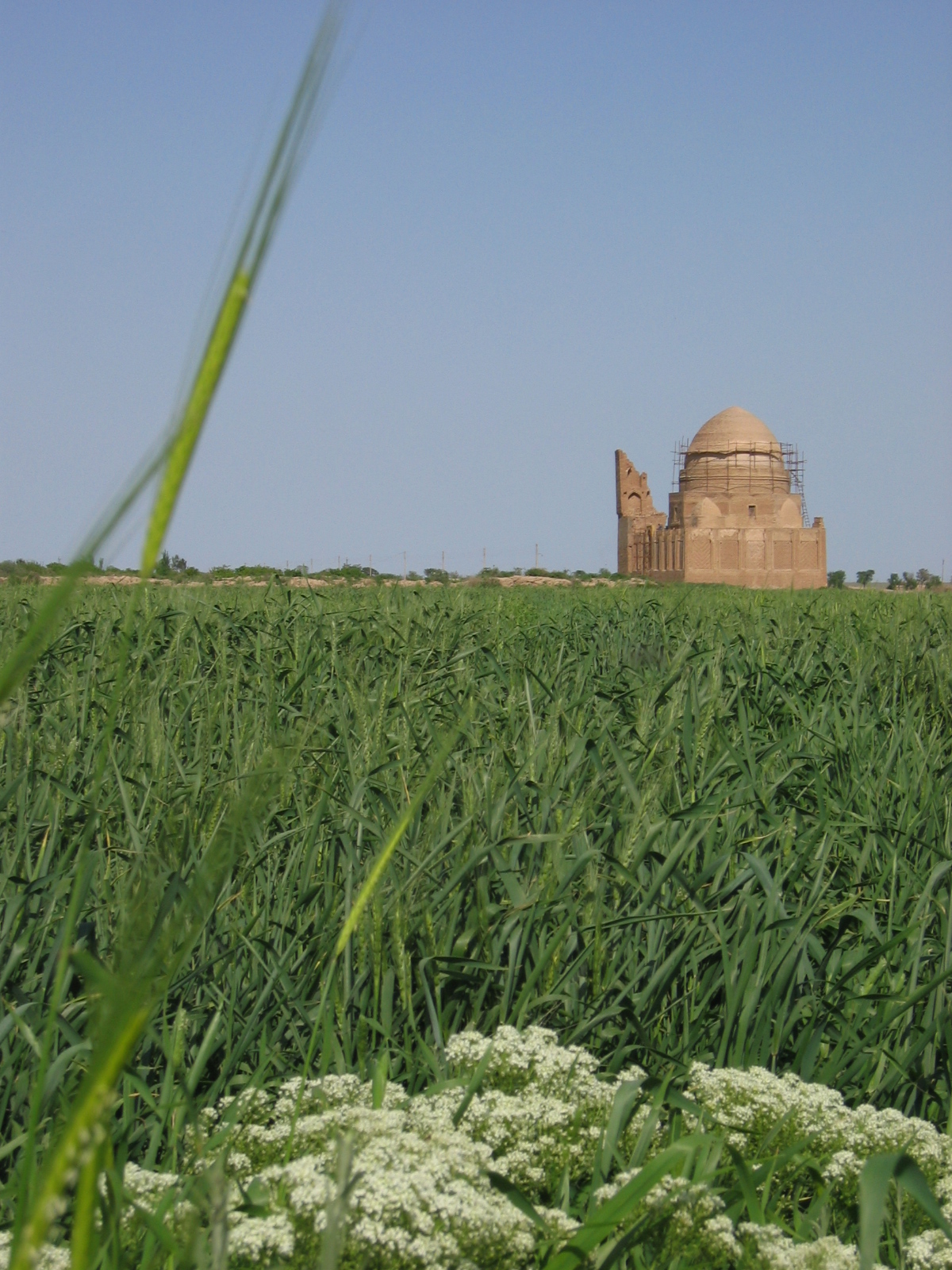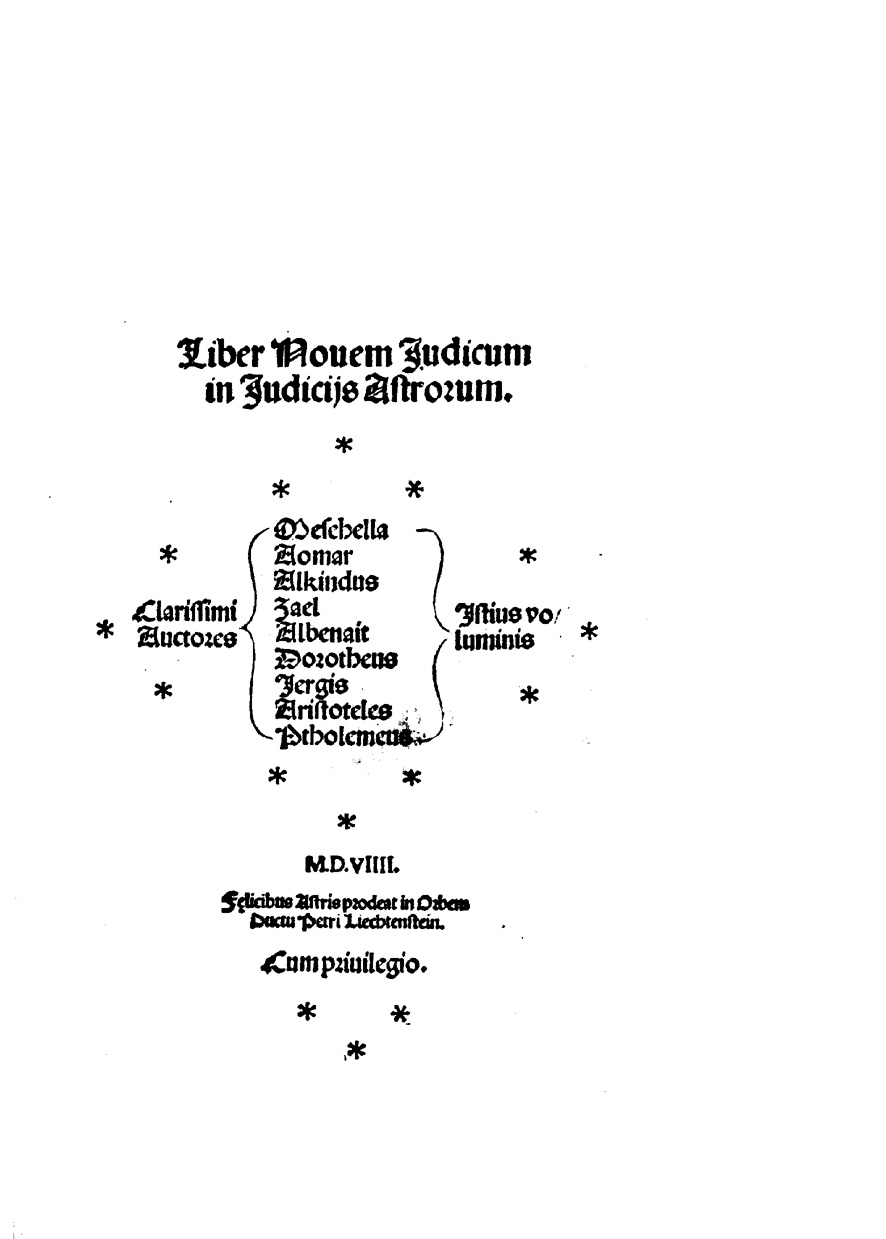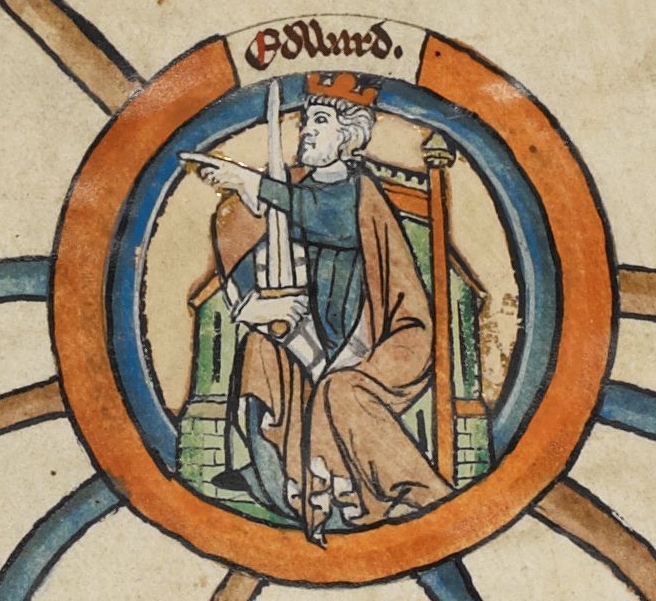|
Ahmad Ibn Al-Tayyib Al-Sarakhsi
Ahmad ibn al-Tayyib al-Sarakhsi ( fa, أحمد بن الطيب السرخسي; died 899 CE) was a Persian traveler, historian and philosopher from the city of Sarakhs. He was a pupil of al-Kindi. Al-Sarakhsi was killed by Caliph al-Mu'tadid because, according to an anecdote preserved in Yaqut al-Hamawi's ''Mu'jam al-Udaba, he had urged the caliph towards apostasy. Al-Biruni Abu Rayhan Muhammad ibn Ahmad al-Biruni (973 – after 1050) commonly known as al-Biruni, was a Khwarazmian Iranian in scholar and polymath during the Islamic Golden Age. He has been called variously the "founder of Indology", "Father of Co ... reports in his ''Chronology'' that al-Sarakhsi had written books in which he denounced prophecy and ridiculed the prophets, whom he styled charlatans. However, Rosenthal has disputed the historicity of the stories that claim al-Sarakhsi was executed for heretical beliefs. References {{Authority control 899 deaths Islamic philosophers Arabic commentators o ... [...More Info...] [...Related Items...] OR: [Wikipedia] [Google] [Baidu] |
Persian Peoples
The Persians are an Iranian ethnic group who comprise over half of the population of Iran. They share a common cultural system and are native speakers of the Persian language as well as of the languages that are closely related to Persian. The ancient Persians were originally an ancient Iranian people who had migrated to the region of Persis (corresponding to the modern-day Iranian province of Fars) by the 9th century BCE. Together with their compatriot allies, they established and ruled some of the world's most powerful empires that are well-recognized for their massive cultural, political, and social influence, which covered much of the territory and population of the ancient world.. Throughout history, the Persian people have contributed greatly to art and science. Persian literature is one of the world's most prominent literary traditions. In contemporary terminology, people from Afghanistan, Tajikistan, and Uzbekistan who natively speak the Persian language are know ... [...More Info...] [...Related Items...] OR: [Wikipedia] [Google] [Baidu] |
Sarakhs
Sarakhs ( fa, سرخس, Saraxs, also Romanized as Serakhs) is a city in Sarakhs County, Razavi Khorasan Province, Iran. Sarakhs was once a stopping point along the Silk Road, and in its 11th century heyday had many libraries. Much of the original city site is now just across the border at Serakhs in Turkmenistan. According to the most recent national census, in 2006, the city's population was 33,571 in 8,066 families. History Several Battle of Sarakhs (other), battles were fought in this area. According to Ferdowsi's Shahnameh the town has existed since the Afrasiab period and was named for its builder, Sarakhs, son of Godarz, by Keykavus. The surrounding oasis has been inhabited since 2nd millennium BCE and Turkmen historians consider the city to have been founded in 507 BCE. Although this is considered to be a somewhat arbitrary choice of date, the section of the city called Sarahs that's now on the Turkmenistan side of the border, duly celebrated its 2500th annive ... [...More Info...] [...Related Items...] OR: [Wikipedia] [Google] [Baidu] |
Al-Kindi
Abū Yūsuf Yaʻqūb ibn ʼIsḥāq aṣ-Ṣabbāḥ al-Kindī (; ar, أبو يوسف يعقوب بن إسحاق الصبّاح الكندي; la, Alkindus; c. 801–873 AD) was an Arab Muslim philosopher, polymath, mathematician, physician and music theorist. Al-Kindi was the first of the Islamic peripatetic philosophers, and is hailed as the "father of Arab philosophy". Al-Kindi was born in Kufa and educated in Baghdad. He became a prominent figure in the House of Wisdom, and a number of Abbasid Caliphs appointed him to oversee the translation of Greek scientific and philosophical texts into the Arabic language. This contact with "the philosophy of the ancients" (as Hellenistic philosophy was often referred to by Muslim scholars) had a profound effect on him, as he synthesized, adapted and promoted Hellenistic and Peripatetic philosophy in the Muslim world. He subsequently wrote hundreds of original treatises of his own on a range of subjects ranging from metaphysics, ethi ... [...More Info...] [...Related Items...] OR: [Wikipedia] [Google] [Baidu] |
New York University Press
New York University Press (or NYU Press) is a university press that is part of New York University. History NYU Press was founded in 1916 by the then chancellor of NYU, Elmer Ellsworth Brown. Directors * Arthur Huntington Nason, 1916–1932 * No director, 1932–1946 * Jean B. Barr (interim director), 1946–1952 * Filmore Hyde, 1952–1957 * Wilbur McKee, acting director, 1957–1958 * William B. Harvey, 1958–1966 * Christopher Kentera, 1966–1974 * Malcolm C. Johnson, 1974–1981 * Colin Jones, 1981–1996 * Niko Pfund, 1996–2000 * Steve Maikowski, 2001–2014 * Ellen Chodosh, 2014–present Notable publications Once best known for publishing '' The Collected Writings of Walt Whitman'', NYU Press has now published numerous award-winning scholarly works, such as ''Convergence Culture'' (2007) by Henry Jenkins, ''The Rabbi's Wife'' (2006) by Shuly Schwartz, and ''The Encyclopedia of Jewish Life Before and During the Holocaust'' (2002). Other well-known names publish ... [...More Info...] [...Related Items...] OR: [Wikipedia] [Google] [Baidu] |
Al-Mu'tadid
Abū al-ʿAbbās Aḥmad ibn Ṭalḥa al-Muwaffaq ( ar, أبو العباس أحمد بن طلحة الموفق), 853/4 or 860/1 – 5 April 902, better known by his regnal name al-Muʿtaḍid bi-llāh ( ar, المعتضد بالله, link=no, "Seeking Support in God"), was the caliph of the Abbasid Caliphate from 892 until his death in 902. Al-Mu'tadid was the son of al-Muwaffaq, who was the regent and effective ruler of the Abbasid state during the reign of his brother, Caliph al-Mu'tamid. As a prince, the future al-Mu'tadid served under his father during various military campaigns, most notably in the suppression of the Zanj Rebellion, in which he played a major role. When al-Muwaffaq died in June 891 al-Mu'tadid succeeded him as regent. He quickly sidelined his cousin and heir-apparent al-Mufawwid; when al-Mu'tamid died in October 892, he succeeded to the throne. Like his father, al-Mu'tadid's power depended on his close relations with the army. These were first forged duri ... [...More Info...] [...Related Items...] OR: [Wikipedia] [Google] [Baidu] |
Yaqut Al-Hamawi
Yāqūt Shihāb al-Dīn ibn-ʿAbdullāh al-Rūmī al-Ḥamawī (1179–1229) ( ar, ياقوت الحموي الرومي) was a Muslim scholar of Byzantine Greek ancestry active during the late Abbasid period (12th-13th centuries). He is known for his , an influential work on geography containing valuable information pertaining to biography, history and literature as well as geography. Life ''Yāqūt'' (''ruby'' or ''hyacinth'') was the '' kunya'' of Ibn Abdullāh ("son of Abdullāh"). He was born in Constantinople, and as his ''nisba'' "al-Rumi" ("from Rūm") indicates he had Byzantine Greek ancestry. Yāqūt was "mawali" to ‘Askar ibn Abī Naṣr al-Ḥamawī, a trader of Baghdad, Iraq, the seat of the Abbasid Caliphate, from whom he received the ''laqab'' "Al-Hamawī". As ‘Askar's apprentice, he learned about accounting and commerce, becoming his envoy on trade missions and travelling twice or three times to Kish in the Persian Gulf. In 1194 ‘Askar stopped his salary ov ... [...More Info...] [...Related Items...] OR: [Wikipedia] [Google] [Baidu] |
Al-Biruni
Abu Rayhan Muhammad ibn Ahmad al-Biruni (973 – after 1050) commonly known as al-Biruni, was a Khwarazmian Iranian in scholar and polymath during the Islamic Golden Age. He has been called variously the "founder of Indology", "Father of Comparative Religion", "Father of modern geodesy", and the first anthropologist. Al-Biruni was well versed in physics, mathematics, astronomy, and natural sciences, and also distinguished himself as a historian, chronologist, and linguist. He studied almost all the sciences of his day and was rewarded abundantly for his tireless research in many fields of knowledge. Royalty and other powerful elements in society funded Al-Biruni's research and sought him out with specific projects in mind. Influential in his own right, Al-Biruni was himself influenced by the scholars of other nations, such as the Greeks, from whom he took inspiration when he turned to the study of philosophy. A gifted linguist, he was conversant in Khwarezmian, Persian, Ar ... [...More Info...] [...Related Items...] OR: [Wikipedia] [Google] [Baidu] |
899 Deaths
__NOTOC__ Year 899 ( DCCCXCIX) was a common year starting on Monday (link will display the full calendar) of the Julian calendar. Events By place Europe * Summer – King Arnulf of Carinthia enlists the support of the Magyars, to raid northern Italy. They overrun the Lombard plain all the way to Pavia. King Berengar I assembles a large army against the Magyars, and confronts them near the Adda River. Daunted at the strong force, Árpád (head of the confederation of the Hungarian tribes) offers to make peace and restore much of what they've taken, if they are permitted to leave Italy unmolested. Berengar refuses, and the Magyars withdraw to the Brenta River. Árpád renews his offer, offering to leave all his booty and even some hostages. Again Berengar refuses, and awaits their crossing of the Brenta River for a final battle. * Battle of the Brenta: The Magyar forces, consisting of 5,000 men, take a circuitous route through the mountains, crossing the Brenta River ... [...More Info...] [...Related Items...] OR: [Wikipedia] [Google] [Baidu] |
Islamic Philosophers
Muslim philosophers both profess Islam and engage in a style of philosophy situated within the structure of the Arabic language and Islam, though not necessarily concerned with religious issues. The sayings of the companions of Muhammad contained little philosophical discussion. In the eighth century, extensive contact with the Byzantine Empire led to a drive to translate philosophical works of Ancient Greek Philosophy (especially the texts of Aristotle) into Arabic. The ninth-century Al-Kindi is considered the founder of Islamic peripatetic philosophy (800–1200)./ref> , - , Averroes , , Spain (Andalusia) , 1126–1198 , Peripatetic , Being described as "founding father of secular thought in Western Europe", He was known by the nickname ''the Commentator'' for his precious commentaries on Aristotle's works. His main work was ''The Incoherence of the Incoherence'' in which he defended philosophy against al-Ghazali's claims in ''The Incoherence of the Philosophers''. His other wo ... [...More Info...] [...Related Items...] OR: [Wikipedia] [Google] [Baidu] |
Arabic Commentators On Aristotle
Arabic (, ' ; , ' or ) is a Semitic language spoken primarily across the Arab world.Semitic languages: an international handbook / edited by Stefan Weninger; in collaboration with Geoffrey Khan, Michael P. Streck, Janet C. E.Watson; Walter de Gruyter GmbH & Co. KG, Berlin/Boston, 2011. Having emerged in the 1st century, it is named after the Arab people; the term "Arab" was initially used to describe those living in the Arabian Peninsula, as perceived by geographers from ancient Greece. Since the 7th century, Arabic has been characterized by diglossia, with an opposition between a standard prestige language—i.e., Literary Arabic: Modern Standard Arabic (MSA) or Classical Arabic—and diverse vernacular varieties, which serve as mother tongues. Colloquial dialects vary significantly from MSA, impeding mutual intelligibility. MSA is only acquired through formal education and is not spoken natively. It is the language of literature, official documents, and formal written m ... [...More Info...] [...Related Items...] OR: [Wikipedia] [Google] [Baidu] |
9th-century Iranian Philosophers
The 9th century was a period from 801 ( DCCCI) through 900 ( CM) in accordance with the Julian calendar. The Carolingian Renaissance and the Viking raids occurred within this period. In the Middle East, the House of Wisdom was founded in Abbasid Baghdad, attracting many scholars to the city. The field of algebra was founded by the Muslim polymath al-Khwarizmi. The most famous Islamic Scholar Ahmad ibn Hanbal was tortured and imprisoned by Abbasid official Ahmad ibn Abi Du'ad during the reign of Abbasid caliph al-Mu'tasim and caliph al-Wathiq. In Southeast Asia, the height of the Mataram Kingdom happened in this century, while Burma would see the establishment of the major kingdom of Pagan. Tang China started the century with the effective rule under Emperor Xianzong and ended the century with the Huang Chao rebellions. While the Maya experienced widespread political collapse in the central Maya region, resulting in internecine warfare, the abandonment of cities, and a northward ... [...More Info...] [...Related Items...] OR: [Wikipedia] [Google] [Baidu] |
Travel Writers Of The Medieval Islamic World
Travel is the movement of people between distant geographical locations. Travel can be done by foot, bicycle, automobile, train, boat, bus, airplane, ship or other means, with or without luggage, and can be one way or round trip. Travel can also include relatively short stays between successive movements, as in the case of tourism. Etymology The origin of the word "travel" is most likely lost to history. The term "travel" may originate from the Old French word ''travail'', which means 'work'. According to the Merriam-Webster dictionary, the first known use of the word ''travel'' was in the 14th century. It also states that the word comes from Middle English , (which means to torment, labor, strive, journey) and earlier from Old French (which means to work strenuously, toil). In English, people still occasionally use the words , which means struggle. According to Simon Winchester in his book ''The Best Travelers' Tales (2004)'', the words ''travel'' and ''travail'' both ... [...More Info...] [...Related Items...] OR: [Wikipedia] [Google] [Baidu] |









